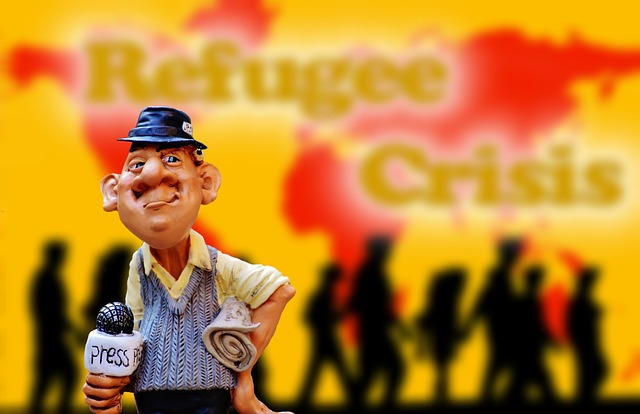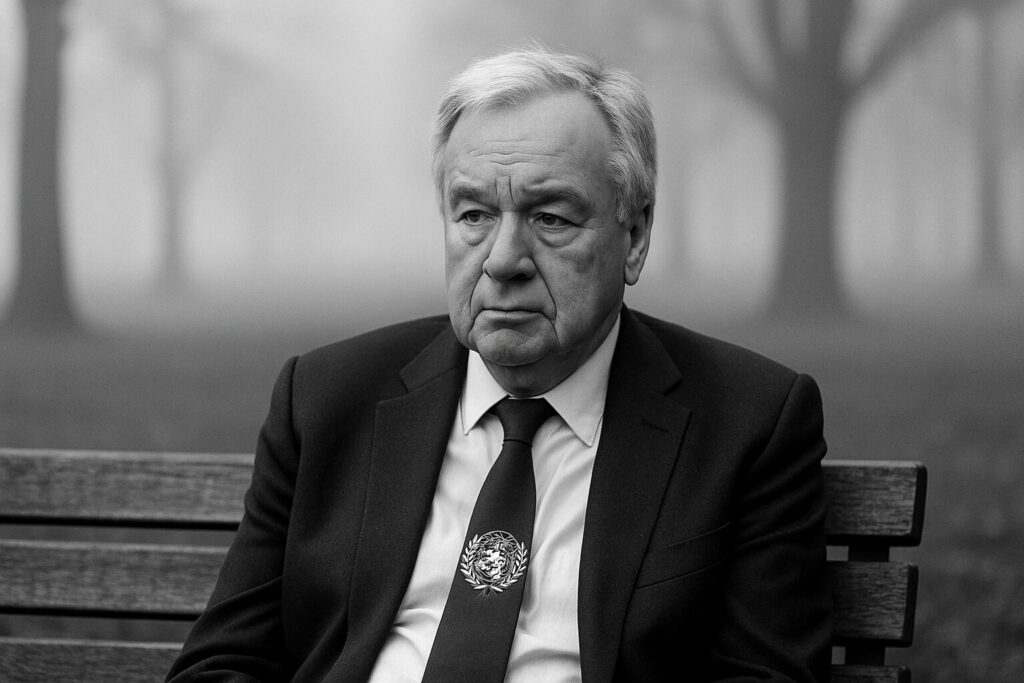Understanding Geopolitical Flashpoints
The Historical Context
Reflecting on the historical backdrop of geopolitical flashpoints reveals a tapestry of interconnected events that have shaped the current landscape. Understanding the roots of disputes and rivalries in these regions is crucial for assessing the complexities of present-day conflicts. By delving into the past, we gain valuable insights into the deep-seated grievances and ambitions that fuel tensions in key hotspots around the globe.
The Role of National Interests and Alliances
Examining the role of national interests and alliances provides a lens through which to analyze the intricate web of relationships that underpin geopolitical dynamics. Nations align themselves strategically to protect their interests, often forming alliances that can either stabilize or inflame tensions in critical regions. By deciphering the motivations behind these alliances and the objectives they serve, we gain a clearer understanding of how international relations are shaped by a complex interplay of self-interest and diplomacy.
Global Hotspots and Their Impact
The South China Sea Dispute
Exploring the South China Sea dispute reveals heightened geopolitical tensions in the Asia-Pacific region. This maritime territorial dispute involves multiple countries claiming sovereignty over contested islands and maritime rights. The strategic importance of the South China Sea as a major trade route and resource-rich area adds complexity to the conflict. The ongoing disputes have implications for regional stability, economic interests, and maritime security.
Tensions in the Taiwan Strait
Examining the tensions in the Taiwan Strait underscores the delicate balance of power in East Asia. The historical rivalry between Taiwan and mainland China, coupled with Taiwan’s strategic importance, creates a potential flashpoint. The unresolved status of Taiwan fuels geopolitical tensions, with implications for regional security and global alliances. The Taiwan Strait remains a critical area of contention, affecting the dynamics of international relations in the Asia-Pacific region.
Russia-Ukraine Conflict
Analyzing the Russia-Ukraine conflict sheds light on ongoing geopolitical struggles in Eastern Europe. The annexation of Crimea by Russia and the continued conflict in eastern Ukraine underscore the complexities of historical grievances and power dynamics in the region. The conflict has far-reaching implications, impacting European security, NATO-Russia relations, and global stability. The Russia-Ukraine conflict remains a key geopolitical flashpoint with repercussions for international diplomacy.
Israel-Palestine: An Enduring Struggle
The Israel-Palestine conflict epitomizes a longstanding geopolitical challenge in the Middle East. Decades of territorial disputes, competing national narratives, and failed peace negotiations characterize this enduring struggle. The status of Jerusalem, Palestinian statehood, and Israeli security concerns contribute to the complexity of the conflict. The Israel-Palestine issue continues to shape regional dynamics and international efforts towards peace and stability in the Middle East.
The Kashmir Conflict Between India and Pakistan
Examining the Kashmir conflict between India and Pakistan highlights a persistent source of tension in South Asia. The territorial dispute over the Kashmir region, divided between the two nuclear-armed neighbors, has led to multiple conflicts and cross-border skirmishes. Historical grievances, ethnic complexities, and geopolitical interests further complicate efforts to resolve the Kashmir issue. The Kashmir conflict remains a critical flashpoint in the region, with implications for regional security and diplomatic relations.
Economic Implications of Geopolitical Tensions
1. Impact on Global Trade
Geopolitical tensions often lead to disruptions in global trade flows. When conflicts arise between nations, trade relations can be strained, impacting the movement of goods and services across borders. For example, trade embargoes or sanctions imposed due to geopolitical tensions can restrict the flow of essential commodities, leading to shortages and price hikes in the global market. As a result, businesses may face challenges in sourcing raw materials or reaching new markets, affecting their profitability and operational efficiency.
2. Fluctuations in Energy Markets
Geopolitical flashpoints can significantly influence energy markets, especially in regions rich in oil and natural gas resources. Tensions in key oil-producing countries can disrupt supply chains, causing fluctuations in energy prices worldwide. For instance, conflicts in the Middle East have historically led to spikes in oil prices, impacting consumers and industries reliant on petroleum products. These fluctuations can also create uncertainty for energy investors and affect the broader economy by altering production costs and consumer spending patterns.
3. The Ripple Effect on International Investments
Geopolitical tensions have a ripple effect on international investments, influencing investor confidence and capital flows. Uncertainty stemming from conflicts or geopolitical instability can lead investors to adopt a cautious approach, affecting investment decisions across different sectors. In times of heightened tensions, financial markets may experience volatility, with stock prices fluctuating in response to geopolitical developments. This uncertainty can also impact foreign direct investment (FDI) flows, as investors may hesitate to commit capital to regions deemed risky due to ongoing conflicts or geopolitical rivalries.
Diplomatic Strategies and International Relations
Continuing from the discussion on the economic implications of geopolitical tensions, I’ll now delve into the diplomatic strategies and international relations that play a crucial role in managing and resolving such conflicts.
Role of the United Nations
- The United Nations acts as a key player in mediating international disputes and promoting peaceful resolutions. With its emphasis on diplomacy and conflict resolution, the UN provides a platform for dialogue among nations to address geopolitical flashpoints. Security Council resolutions, peacekeeping missions, and diplomatic negotiations are essential tools used by the UN to de-escalate tensions and maintain stability in global hotspots. The UN’s role in promoting adherence to international law and upholding human rights principles further enhances its significance in managing geopolitical conflicts.
Peacekeeping Challenges and Successes
- Peacekeeping missions face various challenges in conflict zones, including political complexities, resource constraints, and cooperation issues among involved parties. Despite these obstacles, successful peacekeeping efforts have been pivotal in reducing violence, protecting civilians, and facilitating the transition to stability in regions affected by geopolitical tensions. By deploying troops, observers, and civilian personnel, peacekeeping missions aim to create conditions conducive to lasting peace and reconciliation, contributing to the resolution of conflicts and the rebuilding of societies post-conflict.
The Impact of Sanctions and Negotiations
- Sanctions are diplomatic tools used to exert pressure on states or entities engaging in activities deemed harmful to international peace and security. While sanctions can influence the behavior of targeted actors, they may also have unintended consequences, affecting civilian populations and exacerbating humanitarian crises. Negotiations, on the other hand, offer a diplomatic alternative to address differences and find mutually acceptable solutions to geopolitical disputes. Effective negotiations require skilled diplomats, political will, and a commitment to dialogue, offering a peaceful path to resolve conflicts and prevent escalation into larger confrontations.
The Role of Public Opinion and Media

Social Media Influence on Global Perception
Social media plays a pivotal role in shaping global perceptions of geopolitical events. Platforms like Twitter, Facebook, and Instagram enable instant dissemination of information, allowing individuals worldwide to share opinions and news in real-time. These platforms amplify voices that might not have been heard otherwise, influencing public opinion on international events.
The speed at which information spreads on social media can significantly impact how conflicts are perceived. Images, videos, and posts shared by users can shape narratives and influence public sentiment towards specific countries or regions. As a result, governments and organizations often seek to leverage social media to manage their public image and garner support for their positions on geopolitical issues.
The Power of Propaganda and Information Warfare
Propaganda and information warfare are powerful tools used to manipulate public opinion in geopolitical conflicts. Through selective dissemination of information, misinformation, and disinformation, actors can influence perceptions, sow discord, and advance their agendas on the global stage.
In modern conflicts, propaganda efforts extend beyond traditional media channels to online platforms and social networks. State actors, non-state actors, and extremist groups use sophisticated techniques to spread propaganda and shape narratives to suit their interests. By controlling the flow of information, these entities seek to sway public opinion, delegitimize opponents, and justify their actions in the eyes of the global community.
Mitigating Risks and Pursuing Stability
Importance of Multilateralism
Multilateralism is crucial in mitigating geopolitical risks and fostering international stability. It entails collaboration and decision-making among multiple countries to address global challenges collectively. By pooling resources, expertise, and influence, multilateral approaches enhance the effectiveness of conflict resolution and crisis management efforts. Organizations like the United Nations play a pivotal role in promoting multilateralism by providing a platform for dialogue, negotiation, and cooperation among nations. Through multilateral frameworks, countries can work together to de-escalate tensions, prevent conflicts, and build consensus on peace-building initiatives. Embracing multilateralism reinforces the notion that international issues require collective responses rather than unilateral actions, promoting a more inclusive and sustainable approach to addressing geopolitical flashpoints.
Preventive Diplomacy and Conflict Resolution
Preventive diplomacy is a proactive approach aimed at averting conflicts before they escalate into crises. It involves early detection of potential sources of tension, mediation efforts, and confidence-building measures to prevent the outbreak of violence. By addressing root causes and triggers of conflicts through diplomatic means, preventive diplomacy seeks to create conditions conducive to peaceful resolutions. Effective preventive diplomacy requires diplomatic agility, strong partnerships, and a deep understanding of the dynamics at play in conflict-prone regions. Through confidential negotiations, shuttle diplomacy, and dialogue facilitation, diplomats can defuse tensions, foster communication between conflicting parties, and pave the way for sustainable peace agreements. By prioritizing preventive diplomacy and proactive conflict resolution measures, the international community can reduce the likelihood of conflicts erupting into full-scale crises, safeguard human lives, and preserve regional stability.


 Paulina Evansonic is a visionary journalist and media entrepreneur who founded Whisper Wagon Wire, a leading platform renowned for its exclusive insights into top stories, world news, science, technology, and home trends. With a passion for uncovering the truth and a keen eye for detail, Paulina has dedicated her career to providing readers with in-depth, accurate, and engaging content.
Paulina's journey in the media industry began with a strong academic background in journalism and communication. Her early career was marked by her work as a reporter and editor for various prestigious publications, where she honed her skills and developed a reputation for her investigative prowess and commitment to quality reporting.
Driven by a desire to create a more holistic and accessible news source, Paulina launched Whisper Wagon Wire. Under her leadership, the platform has grown to become a trusted name in journalism, known for its balanced reporting and insightful analysis. Paulina's innovative approach has not only elevated the standards of news media but also inspired a new generation of journalists to pursue excellence in their work.
Through Whisper Wagon Wire, Paulina continues to influence the media landscape, ensuring that readers stay informed about the most important developments around the world. Her dedication to truth and transparency remains at the core of her mission, making her a respected and influential figure in the field of journalism.
Paulina Evansonic is a visionary journalist and media entrepreneur who founded Whisper Wagon Wire, a leading platform renowned for its exclusive insights into top stories, world news, science, technology, and home trends. With a passion for uncovering the truth and a keen eye for detail, Paulina has dedicated her career to providing readers with in-depth, accurate, and engaging content.
Paulina's journey in the media industry began with a strong academic background in journalism and communication. Her early career was marked by her work as a reporter and editor for various prestigious publications, where she honed her skills and developed a reputation for her investigative prowess and commitment to quality reporting.
Driven by a desire to create a more holistic and accessible news source, Paulina launched Whisper Wagon Wire. Under her leadership, the platform has grown to become a trusted name in journalism, known for its balanced reporting and insightful analysis. Paulina's innovative approach has not only elevated the standards of news media but also inspired a new generation of journalists to pursue excellence in their work.
Through Whisper Wagon Wire, Paulina continues to influence the media landscape, ensuring that readers stay informed about the most important developments around the world. Her dedication to truth and transparency remains at the core of her mission, making her a respected and influential figure in the field of journalism.
